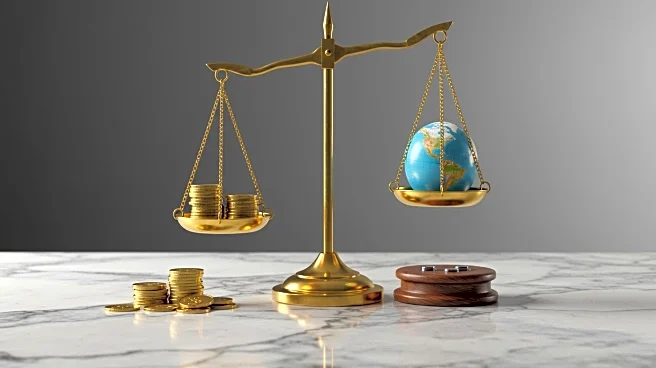What's Happening?
President Donald J. Trump's tariff policies are projected to reduce the U.S. deficit by $4 trillion over the next decade, according to the Congressional Budget Office (CBO). The CBO's analysis indicates that the effective tariff rate on imported goods has increased by 18 percentage points, contributing to a decrease in primary deficits by $3.3 trillion. Additionally, the tariff revenue is expected to reduce federal borrowing needs, resulting in $700 billion less spending on interest. This projection highlights the potential fiscal impact of maintaining the current tariff stance.
Why It's Important?
The projected deficit reduction underscores the significant role of tariff policies in shaping U.S. fiscal health. By increasing tariff rates, the government aims to generate additional revenue and decrease reliance on federal borrowing. This approach could have broader economic implications, affecting trade relationships, consumer prices, and domestic industries. While the deficit reduction is a positive fiscal outcome, the long-term impact on the economy and international trade dynamics remains uncertain. Stakeholders, including businesses and policymakers, will need to consider the potential trade-offs and economic consequences of sustained tariff policies.
What's Next?
The continuation of President Trump's tariff policies will likely influence future fiscal and economic strategies. Policymakers may need to assess the balance between tariff revenue and its impact on trade and consumer costs. The broader economic environment, including global trade tensions and domestic economic conditions, will play a crucial role in shaping the effectiveness of these policies. Stakeholders may advocate for adjustments or alternative approaches to ensure sustainable economic growth and fiscal stability.











